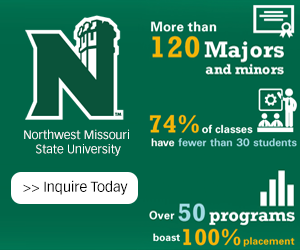Are you ready for an exciting career in broadcast? Whether you're the one shining on camera, writing the hit story, editing together the masterpiece, or running the show, working in broadcast journalism can be both exhilarating and fulfilling. It takes guts and wit, but most of all, passion, to dive into the competitive field. A degree in broadcasting will give you the education, training and experience you need to take the leap of faith.
Why Study Broadcasting?
International students who study broadcasting not only learn about what it takes to be an expert in their fields, but they also gain the out-of-the-classroom experience they need for real-world work. The growing broadcast industry demands diverse and dynamic professionals. Broadcasting schools offer an array of concentrations: from reporting to producing and to managing.
Study to be a Reporter
Always dreamed of informing and inspiring by gathering and delivering the news? Many students study broadcasting to learn to be reporters. Television and radio reporters touch people's daily lives. Everyone needs to be informed about things going on locally, nationally and around the world, and reporters are the ones that bring the news from the field to our homes. Students who study broadcasting often take courses that require them to work at local or university TV and radio stations.
A typical day for student reporters at a university station starts off with a morning meeting, where reporters pitch ideas and assign stories. The students must then contact sources to interview, travel to get footage and bites (short pieces of sound) and then go back to the studio to put the story together. Reporters have to do all of this within strict time periods and deadlines.
If you need additional funding to study broadcasting, explore financial resource options like scholarships and loans.
Other Careers in Television
A television news team is not only comprised of the reporter, but also videographers that shoot the piece, producers that organize the whole news program and anchors that host and deliver the show. Oftentimes reporters are one-man-bands, meaning that they both gather and film the news themselves, but many television stations also require the expertise of videographers who are trained to film and edit the story. Producers are the backbone of any news station. Not only do they put together the news show, but they also help edit, research and contact sources for stories. Anchors differ from reporters in that they are the face of the entire show, and often do not go "into the field" like reporters. Broadcasting schools train students in all of these areas of television news, and also radio news and other areas in the media, such as sports news, weather reporting and entertainment.
Where Should You Study Broadcasting?
There are hundreds of universities in the US that offer degrees in the fields of broadcasting. It has become increasingly popular for US universities and colleges to offer broadcasting as a major. In the past, media organizations did not require prospective employers to earn their degrees in broadcast; all they needed was experience. However, now there are well-developed broadcast programs that are designed to give students education and experience.
The Academy of Radio & Television Broadcasting is just one example, located right outside of Los Angeles, California! One of the nation’s leading hands-on training facilities in Broadcasting, international students will be learning the skills they need for an exciting career in Radio and Television – right in the Entertainment Capital of the World! Students have access to the latest gadgets and equipment to gain comprehensive training combining hands-on training and live broadcasting from fully equipped studios. International students at the Academy are coached one-on-one with working Radio and Television professionals, preparing international students to work as On-Air Personalities, Newscasters, Sports Reporters, Producers, Promotion Directors, Voice-Over Artists, also as on Camera News and Entertainment Reporters, Camera Operators, Video Editors, Commercial Producers and Directors all within months.
Potential students who want to study broadcasting should be aware that the specific names of majors are quite diverse. For example, at the University of Florida, the undergraduate major is called "telecommunication," but a similar program at Northwestern University is called "radio/TV/film." Other popular names are "digital communications", "multimedia" and "broadcast communications." Standout universities for broadcasting are Syracuse University in New York, the University of Southern California in Los Angeles, and the University of Miami. Most schools do not have any prerequisites to study broadcasting, however potential students should check with their university.
Whether you crave that on-screen thrill or have that creative vision to be behind the scenes, a career in broadcasting can be for you. Find out more about becoming an international student studying broadcasting in this guide.
Broadcasting Programs
Visit the Study in the USA School search to find schools that offer programs of study in Broadcasting.
Featured Schools with Broadcasting Programs
Featured Schools with Broadcasting Programs
Learn more about studying broadcasting in the USA by reading our growing article collection:
- Is Broadcasting Right for You?
- What to Look for in a Broadcasting School
- How to Find a Broadcasting School
- Where to Study Broadcasting
- Top Broadcasting Schools in the U.S.
- How to Study Broadcasting in the U.S.
- Broadcasting Degrees at Universities and Colleges
- Undergraduate Degree in Broadcasting
- Careers in Broadcasting
- Study Radio Broadcasting
- Study Television Broadcasting
- Study Sports Broadcasting



